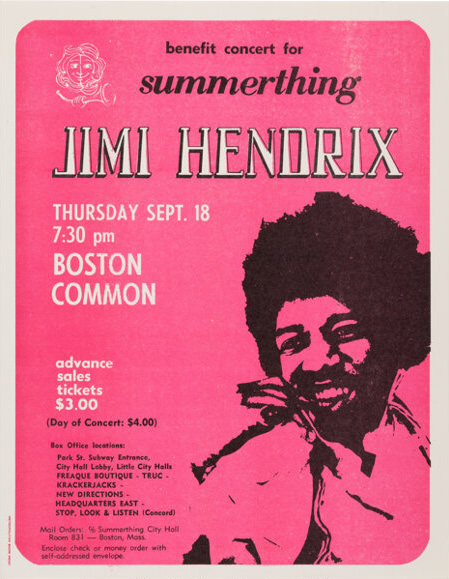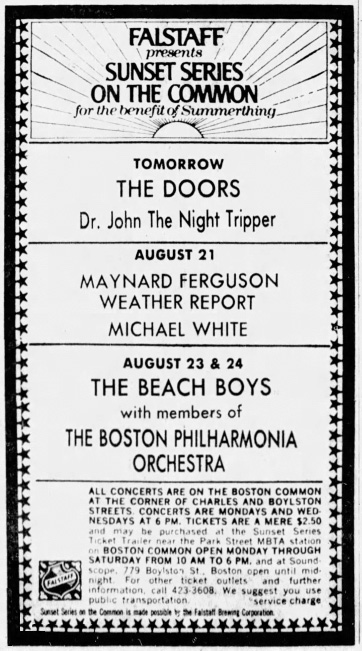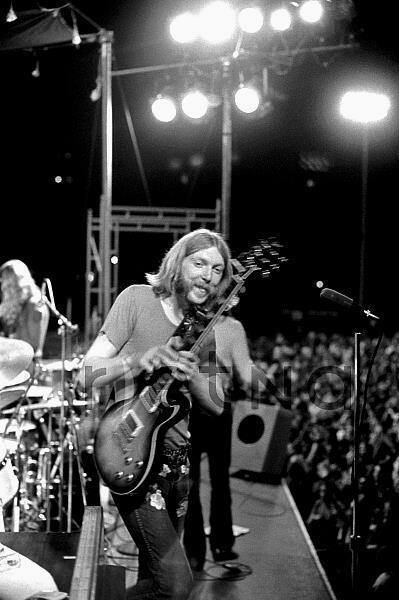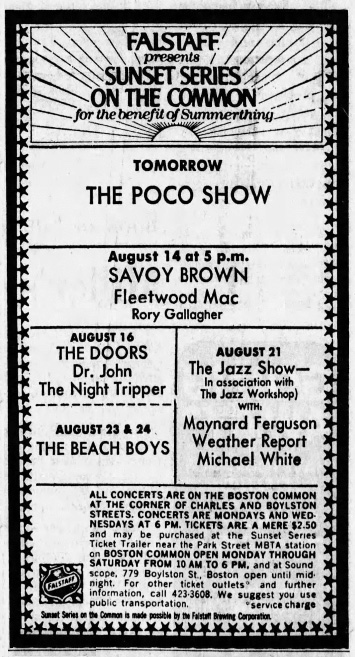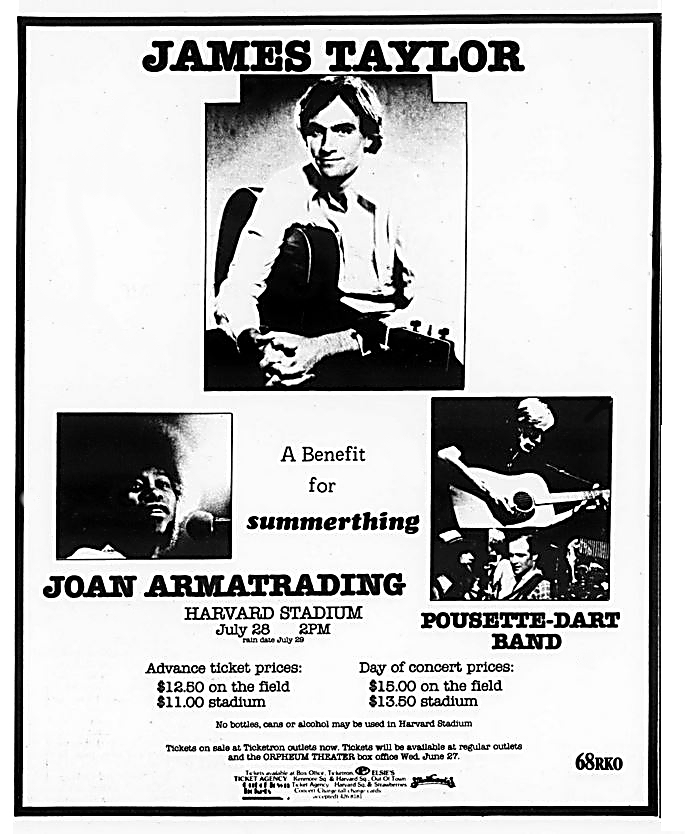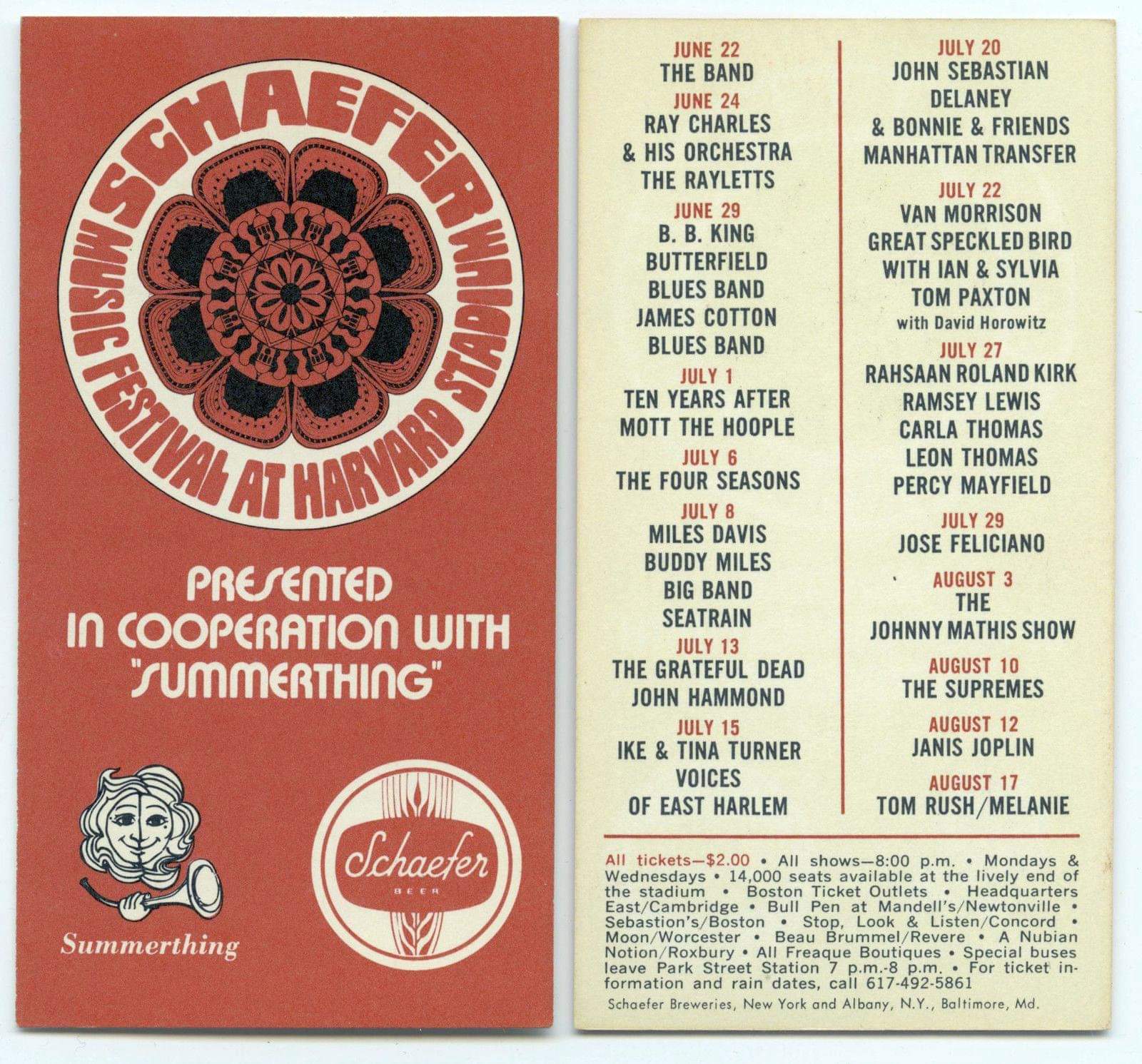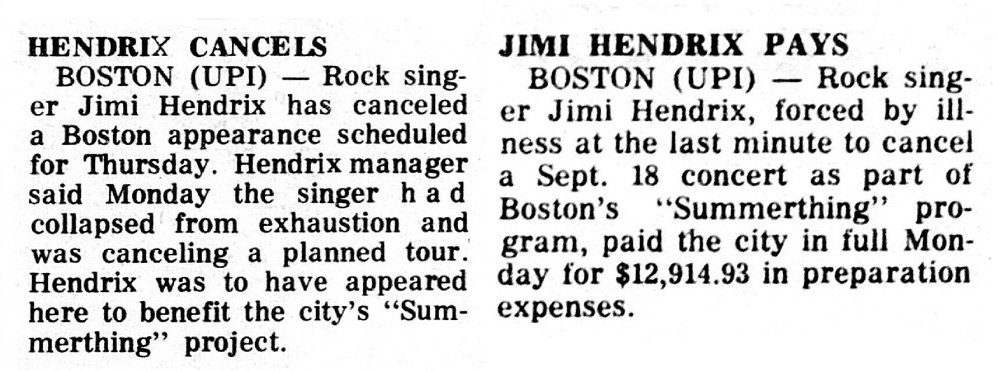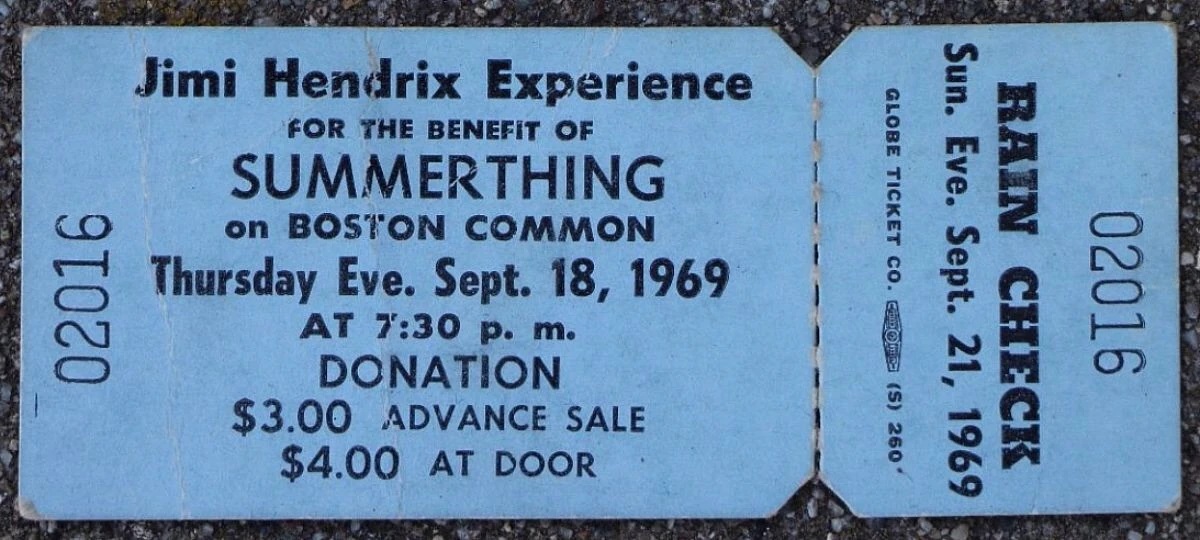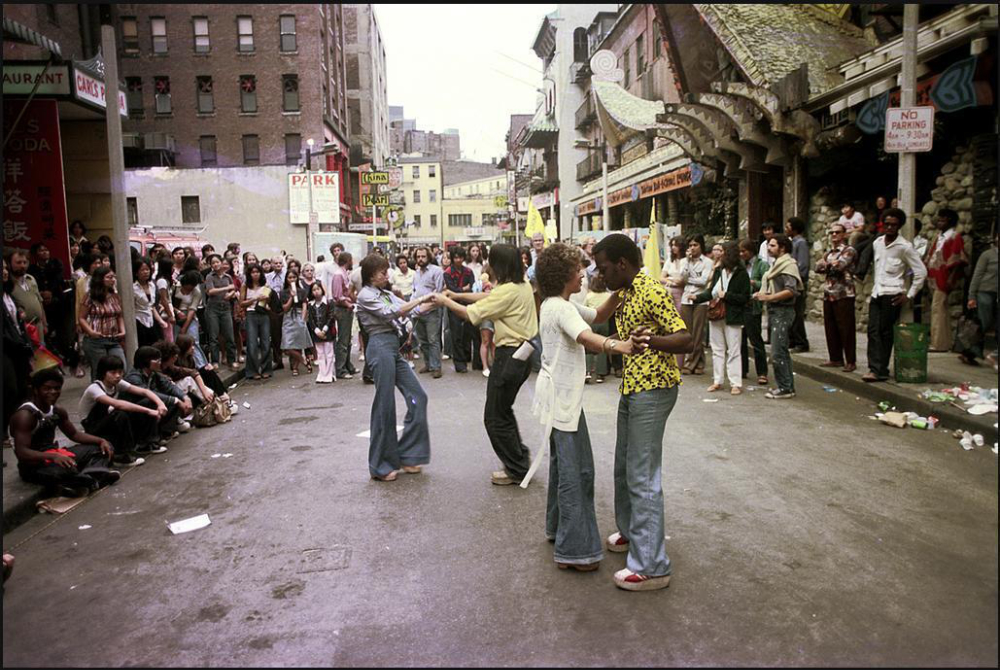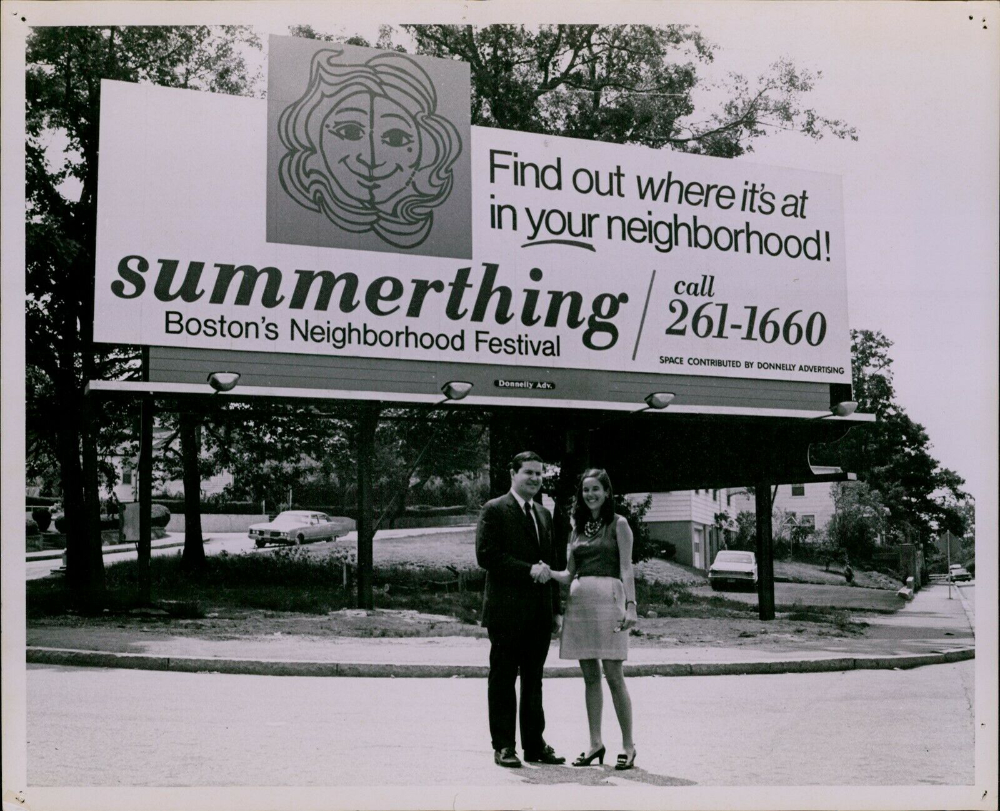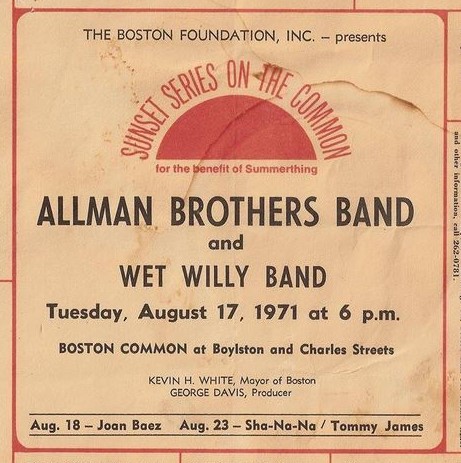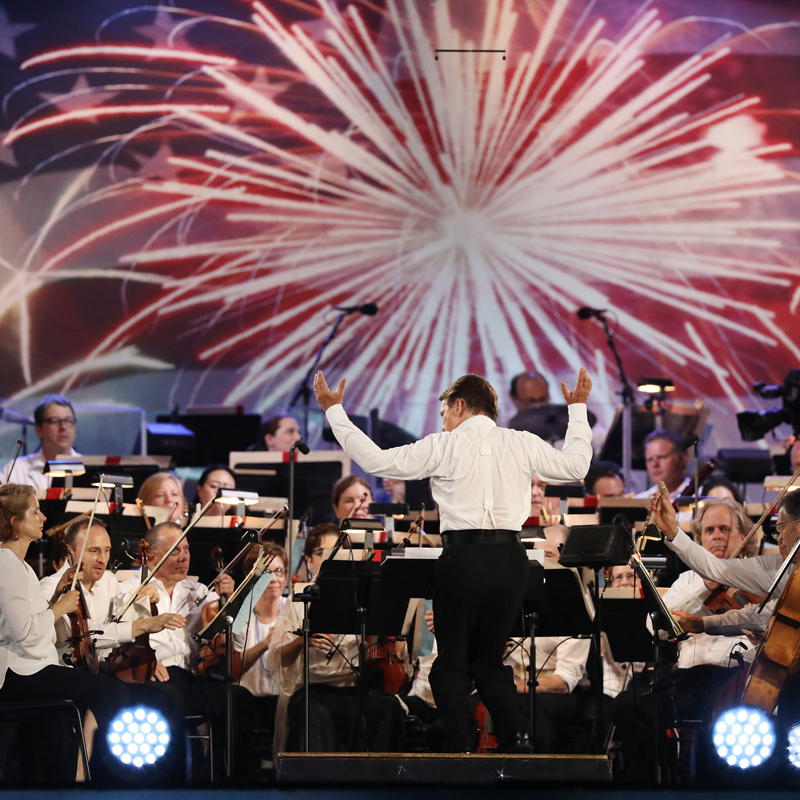Summerthing
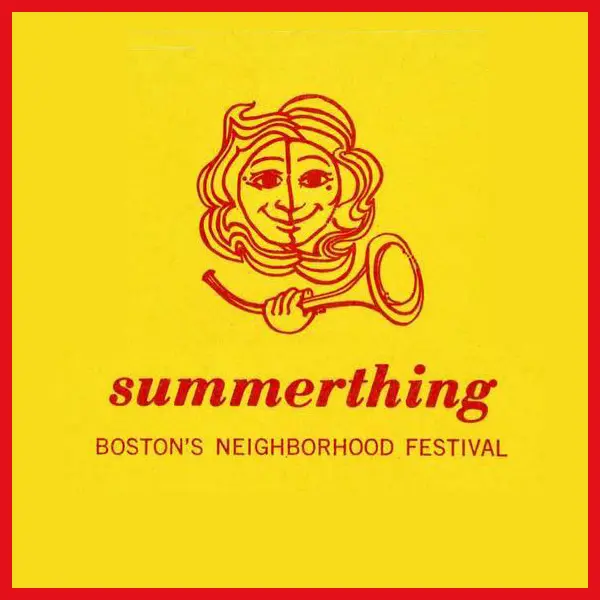
When looking at New England’s musical history, one cannot help realizing that the region’s venues have been as important as the artists. And when it comes to live spaces, nothing compares to the Summer Music Arts and Crafts festivals that ran throughout Boston’s neighborhoods from the late 1960s through the late 1970s: Summerthing. The events were unique because the neighborhoods of Boston themselves served as the venues.
CONCEPT, FORMAT
In 1968, newly elected Boston Mayor Kevin White took a look at America and the inner cities that were rife with civil unrest due to the magnitude of issues that permeated the era. Wanting to put something in place that gave young people something to do in the summer of 1968, the mayor and an assortment of community activists arranged for flatbed trucks, pickups, cars (and anything else that could carry people and equipment) bring music, arts and crafts into the city’s neighborhoods. Stages were set up the evening before the event and people throughout the neighborhood would be entertained by Summerthing in the afternoon and/or in the evening of the following day.
As a native Bostonian, this writer remembers very well how a Summerthing flatbed truck would pull up in our neighborhood playground or field, set up a stage and how word of mouth would run through the neighborhood. “Hey! There’s going to be a Summerthing tonight!” It was as if the entire area would go and watch whatever entertainment they offered and Summerthing did a wonderful job of offering people culture and entertainment that they usually did not have a chance to see. For example, the first time most people in my Dorchester neighborhood ever saw a ballet or a classical performance was when the Boston Ballet Company and the Boston Pops Orchestra appeared at Summerthing.
NATIONAL ATTENTION, NOTABLE EVENTS/APPEARANCES
Summerthing’s ability to give Boston’s children and young adults something to do on hot summer nights soon garnered some significant national attention. Newsweek magazine published a piece and the New York Times ran article on the innovativeness and success of the events. More importantly, just as Mayor White and he collaborators had hoped, Boston became one of the few major American cities not to experience extreme civil unrest and upheaval in the late ‘60s and early ‘70s.
National attention brought the attention of national acts and there was pride in seeing your neighborhood represented by its music and culture on stage for you and your family to enjoy. Whether it was opera singers performing in the North End, traditional Irish acts in South Boston, kung fu demonstrations in Chinatown or artists including The Delfonics, Patti LaBelle, Aretha Franklin, Roberta Flack and Mandrill playing in Dorchester, Roxbury and Mattapan, Summerthing was as unique as the neighborhoods it served.
EXPANSION, LEGACY
With a staff of nearly 2,000 volunteers, teachers, coordinators and program directors, Summerthing helped bring the entertainment and workshops to more than a half a million young Bostonians in its first summer alone. By its eighth season, it was presenting some 1,000 performances in 500 workshops throughout the city every season.
By the late ‘70s, Summerthing had run its course, but for me and countless others who attended the events multiple times, they’re not to be forgotten and recognized for what they were: the kind of successes that you cannot measure with dollar signs. They’re measured by the peace that they helped to foster in the neighborhoods of Boston for close to 10 years.
(by Edwin Sumpter)

